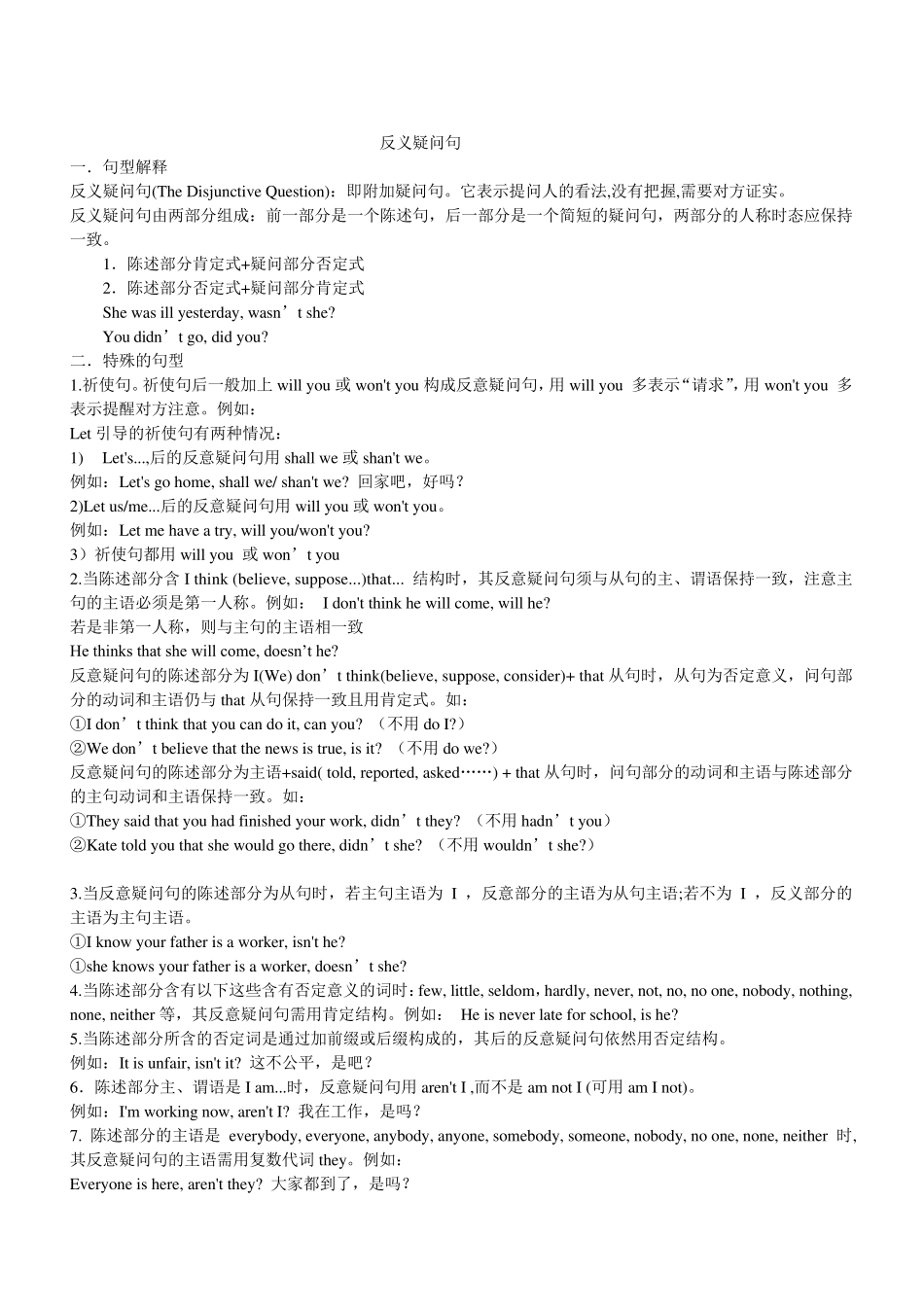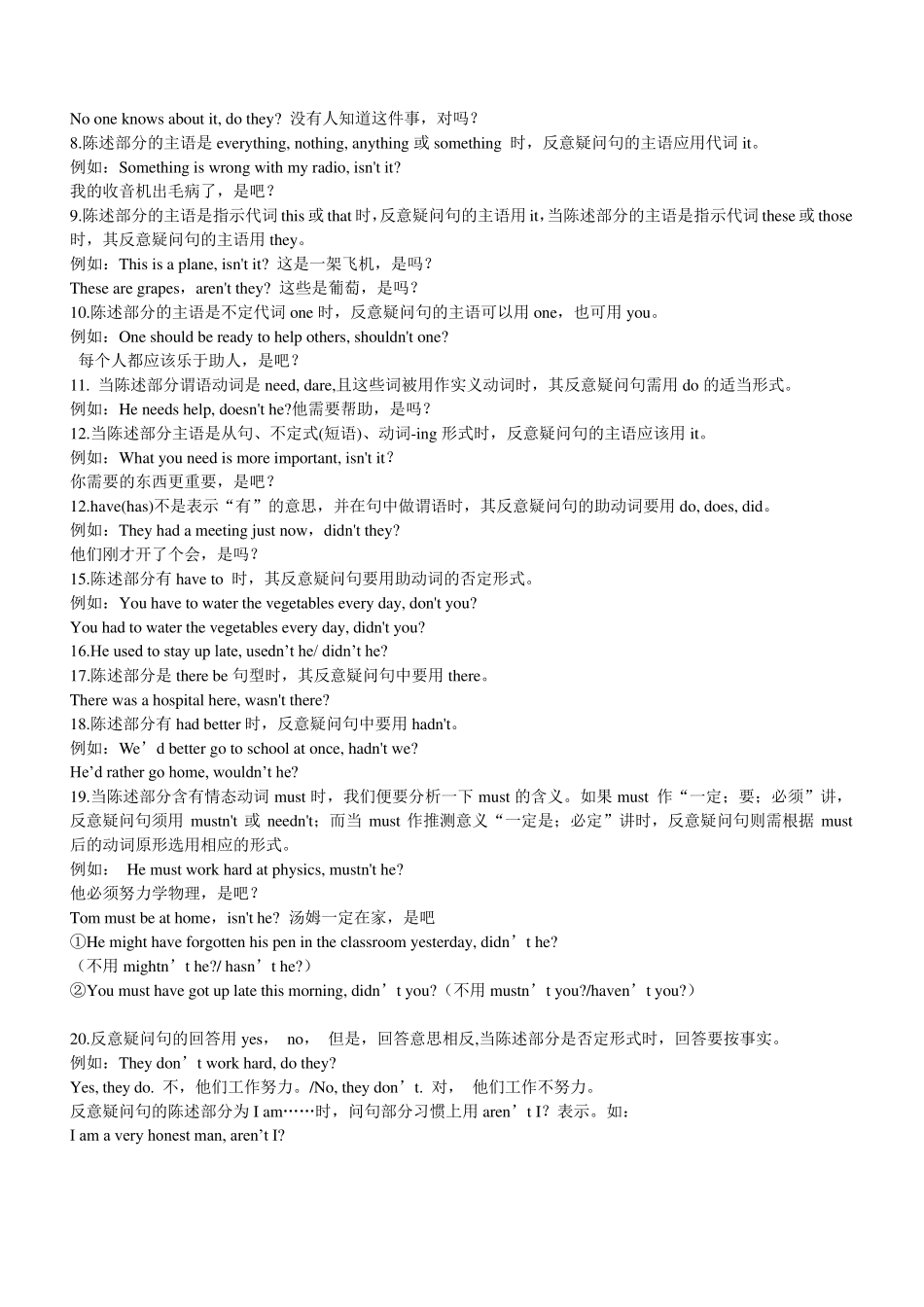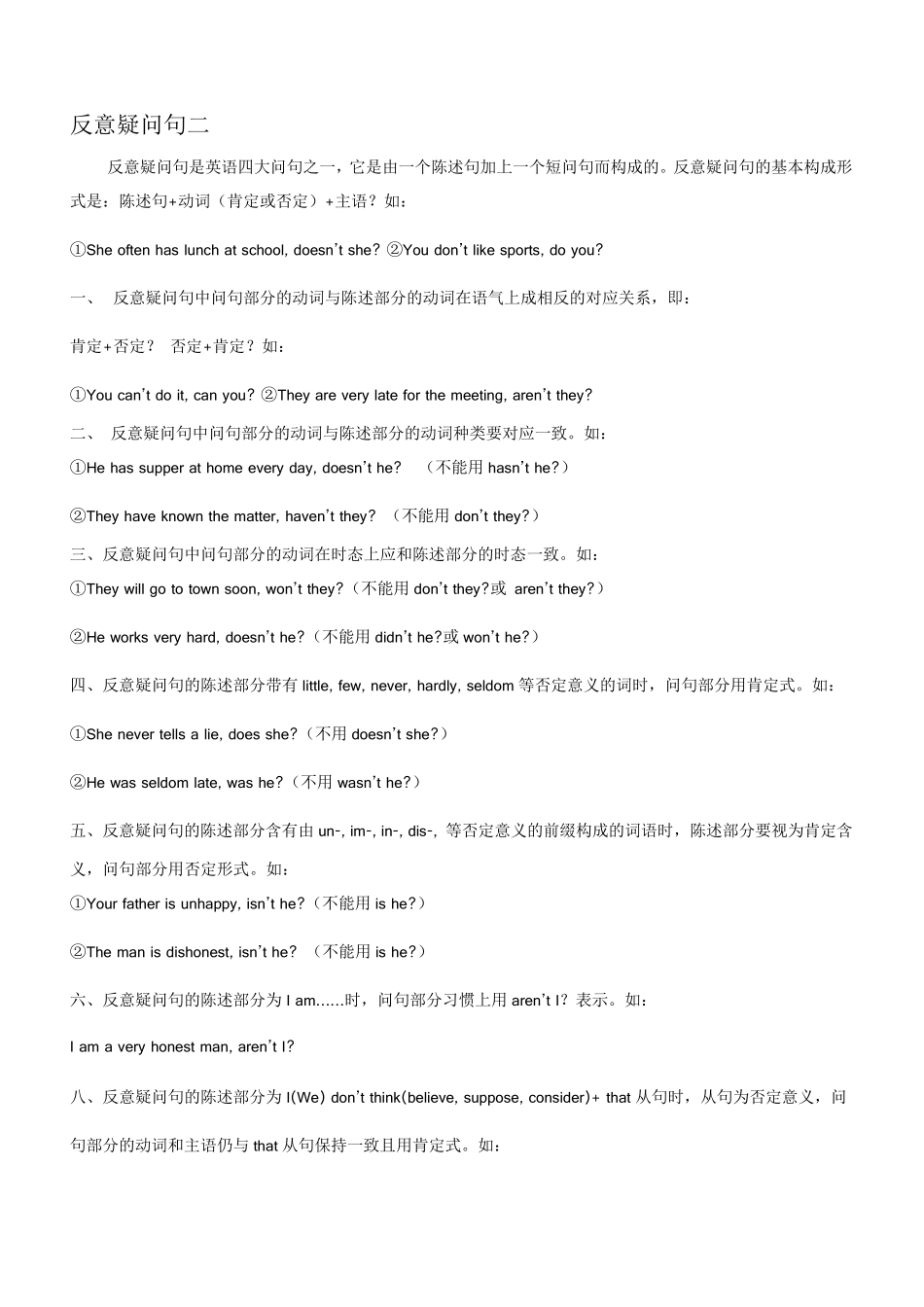反义疑问句 一.句型解释 反义疑问句(The Disjunctive Question):即附加疑问句。它表示提问人的看法,没有把握,需要对方证实。 反义疑问句由两部分组成:前一部分是一个陈述句,后一部分是一个简短的疑问句,两部分的人称时态应保持一致。 1.陈述部分肯定式+疑问部分否定式 2.陈述部分否定式+疑问部分肯定式 She was ill yesterday, wasn’t she? You didn’t go, did you? 二.特殊的句型 1.祈使句。祈使句后一般加上 will you 或 won't you 构成反意疑问句,用 will you 多表示“请求”,用 won't you 多表示提醒对方注意。例如: Let 引导的祈使句有两种情况: 1) Let's...,后的反意疑问句用 shall we 或 shan't we。 例如:Let's go home, shall we/ shan't we? 回家吧,好吗? 2)Let us/me...后的反意疑问句用 will you 或 won't you。 例如:Let me have a try, will you/won't you? 3)祈使句都用 will you 或 won’t you 2.当陈述部分含 I think (believe, suppose...)that... 结构时,其反意疑问句须与从句的主、谓语保持一致,注意主句的主语必须是第一人称。例如: I don't think he will come, will he? 若是非第一人称,则与主句的主语相一致 He thinks that she will come, doesn’t he? 反意疑问句的陈述部分为 I(We) don’t think(believe, suppose, consider)+ that 从句时,从句为否定意义,问句部分的动词和主语仍与 that 从句保持一致且用肯定式。如: ①I don’t think that you can do it, can you? (不用 do I?) ②We don’t believe that the news is true, is it? (不用 do we?) 反意疑问句的陈述部分为主语+said( told, reported, asked……) + that 从句时,问句部分的动词和主语与陈述部分的主句动词和主语保持一致。如: ①They said that you had finished your work, didn’t they? (不用 hadn’t you) ②Kate told you that she would go there, didn’t she? (不用 wouldn’t she?) 3.当反意疑问句的陈述部分为从句时,若主句主语为 I ,反意部分的主语为从句主语;若不为 I ,反义部分的主语为主句主语。 ①I know your father is a worker, isn't he? ①she knows your father is a worker, doesn’t s...


